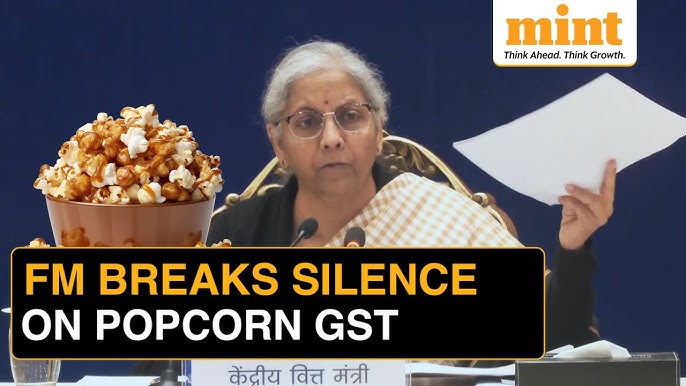The difference in GST rates for caramel and salted popcorn stems from how these items are classified under India’s Goods and Services Tax (GST) system, which differentiates goods based on their preparation, packaging, and value addition.

Source:- bbc news
Taxation Based on Preparation and Value Addition
Salted popcorn is considered a basic food item with minimal processing, typically classified under “ready-to-eat snacks” with a lower GST rate of 5%. It involves fewer ingredients and less value addition, which qualifies it for a lower tax bracket aimed at making everyday snacks affordable.
Source:- news 18
Caramel popcorn, on the other hand, undergoes more extensive preparation, including the addition of caramelized sugar and flavorings. This value addition elevates it to the category of “premium or specialty snacks,” attracting a higher GST rate of 18%. The rationale is that the additional processing and perceived luxury nature of such snacks justify the higher tax rate.
Differentiation in Packaging and Branding
Another factor influencing the GST rate is the packaging and branding. Premium snacks like caramel popcorn are often sold in branded and attractive packaging, which further qualifies them for higher taxation. In contrast, unbranded salted popcorn may fall under lower tax slabs.
Implications
This classification impacts both consumers and businesses. While it raises the cost of caramel popcorn for consumers, it also requires businesses to carefully structure their product offerings to comply with tax rules.
The distinction highlights the broader GST system’s approach to taxing luxury and value-added items at higher rates, while keeping basic, essential goods more affordable.
Share your views in the comments

